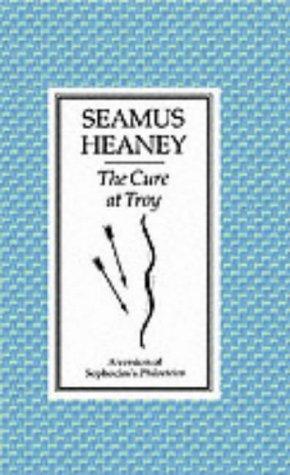brenticus reviewed The cure at Troy by Seamus Heaney
The cure is the gods, apparently
4 stars
I realize, as I try to write this review, that I've never actually read a translation of Philoctetes before. It feels a bit awkward to judge this without seeing how it differs from the original, but on its own it presents interesting thoughts on a range of ideas; we see questions of honour examined, loyalty and betrayal questioned, nationalism put against morality, fate overcoming will and hate. Heaney tiptoes around these themes, recognizing how delicate their balance can be, without compromising on the moral purpose the gods have ordained for Philoctetes. For such a short read it has a lot to consider, and I intend to look at the original soon to examine it further.
I realize, as I try to write this review, that I've never actually read a translation of Philoctetes before. It feels a bit awkward to judge this without seeing how it differs from the original, but on its own it presents interesting thoughts on a range of ideas; we see questions of honour examined, loyalty and betrayal questioned, nationalism put against morality, fate overcoming will and hate. Heaney tiptoes around these themes, recognizing how delicate their balance can be, without compromising on the moral purpose the gods have ordained for Philoctetes. For such a short read it has a lot to consider, and I intend to look at the original soon to examine it further.




















